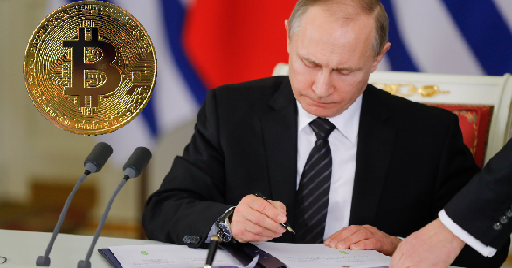Russian President Vladimir Putin has signed a law legalizing cryptocurrency mining in Russia. The new law, passed Thursday, allows registered Russian entrepreneurs to mine cryptocurrencies.
But who exactly can mine and where can you sell what you extract? Here’s what you need to know.
BRICS Turn to Digital Assets
In recent months, the BRICS countries have shown a growing interest in digital assets. Some reports even suggest that they could create a common cryptocurrency to reduce their dependence on the US dollar. As part of these changes, the Russian Parliament has officially legalized cryptocurrency mining.
Who can mine under the new law?
The new law allows only registered Russian companies and individual entrepreneurs to mine cryptocurrencies. Others can also mine without official registration, but they must comply with energy consumption limits set by the government.
The law introduces several new terms into the Russian crypto landscape, such as mining pools, mining infrastructure, address identifiers, and the role of the pool master. Mining is not considered an issuance of digital currency but a part of its turnover. Mined cryptocurrencies and foreign digital assets can be traded on Russian blockchain platforms. However, the Central Bank of Russia can ban certain assets if they pose a risk to financial stability.
A response to sanctions?
Russia is suffering significant losses in international trade due to Western sanctions. In late July, the Russian parliament passed a bill allowing the use of cryptocurrencies for cross-border transactions. This new law on cryptocurrency mining is another step towards wider use of cryptocurrencies in Russia and will come into force ten days after its publication.
According to the Russian news agency, during a recent economic meeting, President Putin discussed the introduction and use of cryptocurrencies with government officials.
Restrictions and challenges coming soon!
While Russia is moving forward with allowing cryptocurrency mining and use for international transactions, domestic use of cryptocurrencies remains prohibited. These new laws could help Russia build stronger trade relationships with partner countries, but they also put Russia and its allies under increased scrutiny from Western regulators. It will be interesting to see how this plays out once the laws are in effect.
Russia has played its game. Will it pay off?

